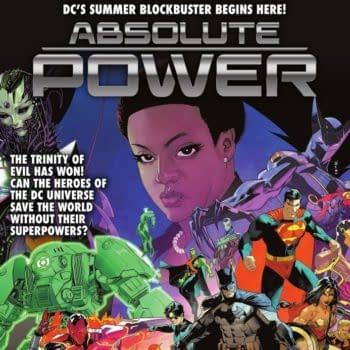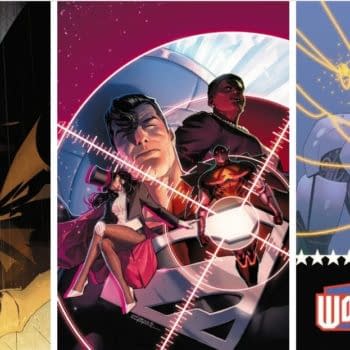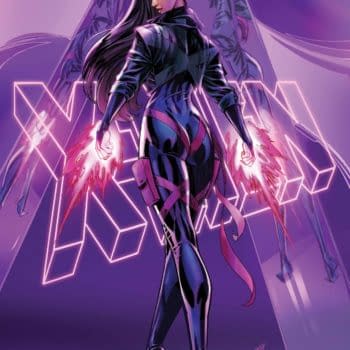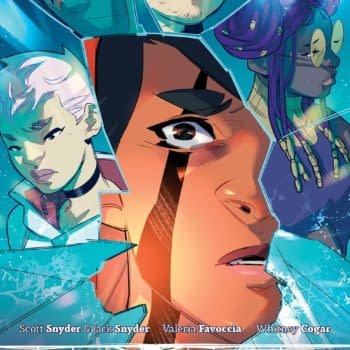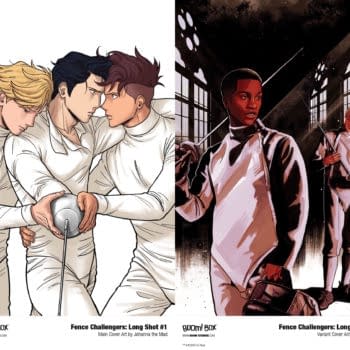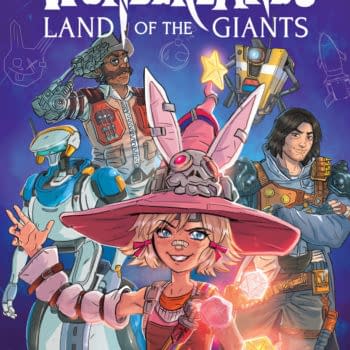Posted in: Comics, Look! It Moves! by Adi Tantimedh | Tagged:
The Melancholy Joys of Russian Science Fiction: Look! It Moves! by Adi Tantimedh
Adi Tantimedh writes;
I've been in a mood for Russian Science Fiction lately, so I bought the video game METRO: LAST LIGHT and THE NEW WATCH, the latest in Sergei Lukyanekno's Watch novels.
METRO: LAST LIGHT is a sequel to METRO 2033, which began life as a popular novel by Dmitri Glukhovsky serialised online in Russia before becoming a dead-tree bestseller, then adapted – surprisingly faithfully – into a video game.
It's funny to think that the majority of Western fans of METRO 2033 know it from the video game. The setting is Moscow after a nuclear war and the survivors of the city now live in the metro stations that were designed after the Second World War to serve as nuclear bunkers as well. The hero of the book, and the one you play in the game, is Artyom, a young orphan who grew up in the metros sent on a hero's journey to warn the other metros of an impending invasion by Dark Ones, a species of telepathic mutants that came along after the nuclear holocaust.
METRO: LAST LIGHT picks up the story a year or so later, with Artyom now a decorated member of the Rangers, an order of soldiers that defends the metros from Nazis and Communists factions that control other metro stations, and hailed as a hero for ending the threat of the Dark Ones at the end of the last game. But Artyom doesn't feel like a hero. By the time he launched the nukes that wiped out the Dark Ones, he had discovered they weren't the enemy but were in fact benevolent – they wanted to live peacefully with the remaining humans and even help them rebuild their civilization, but he's the only one who knows this truth that no one else is interested in hearing.
As you play Artyom wending his way through the metro stations on a mission to warn the Rangers of an impending war the Communists are about to declare on the rest of the metro, you're not a gung-ho action hero but a melancholy soul burdened by guilt. He knows he did something horrible and unforgivable. He had committed genocide and his fellow humans consider him a hero for it. When he discovers there's a surviving Dark One out there, a child, still alive, he sees a chance at penance and possibly redemption by saving it and keeping it alive. As you play through the game as Artyom, every action you decide on, whether to kill enemies, knock them out or sneak pass them, is an expression and examination of the central theme of the whole game and Artyom's central dilemma: whether he and Humanity are worth forgiving and saving, whether he could possibly ever be redeemed for what he did, and the ending is a direct consequence of all those actions.
This seems to be one of the defining characteristics of Russian Science Fiction to me: a sense of moral burden. The whole narrative of both METRO 2033 and METRO: LAST LIGHT, not to mention other Russian Science Fiction like the Sturgatsky Brothers' ROADSIDE PICNIC, whose recent new English translation that restores passages previously censored by the Soviet government should have been a much bigger deal in books than it was, and whose movie adaptation STALKER is a considered a classic, and which has inspired the S.T.A.L.K.E.R. video games. It's surreal and ironic that ROADSIDE PICNIC and STALKER are now best known in the West via the videogame adaptations just like METRO 2033. It's also perhaps a sign of the times that these, the most well-known examples of Russian Science Fiction in the West are centred on post-nuclear war, post-apocalyptic themes, that old fear of nuclear Armageddon still front and centre.

It's a shame that only two new examples of Russian Science Fiction and Fantasy are currently available in the West. The original novel version of METRO 2033 is only finally available in the US in the wake of the release of game sequel METRO: LAST LIGHT. With the Russians' more sophisticated sense of moral themes and metaphor, I'm curious what other popular Russian Science Fiction and Fantasy are like. What's their space opera like, for example? What themes are they more preoccupied with more than US or UK Science Fiction and Fantasy? I feel like there's a whole wealth of stories we're missing out on.
METRO 2033 and METRO: LAST LIGHT are currently available on Xbox 360, Playstation 3 and Windows PC. The original novel version of METRO: 2033 is now available in the US.
THE NEW WATCH is currently only available in a UK edition.
Pomogite pozhaluĭsta! Ya poteryalsya! at lookitmoves@gmail.com
Follow the official LOOK! IT MOVES! twitter feed at http://twitter.com/lookitmoves for thoughts and snark on media and pop culture, stuff for future columns and stuff I may never spend a whole column writing about.
Look! It Moves! © Adisakdi Tantimedh







